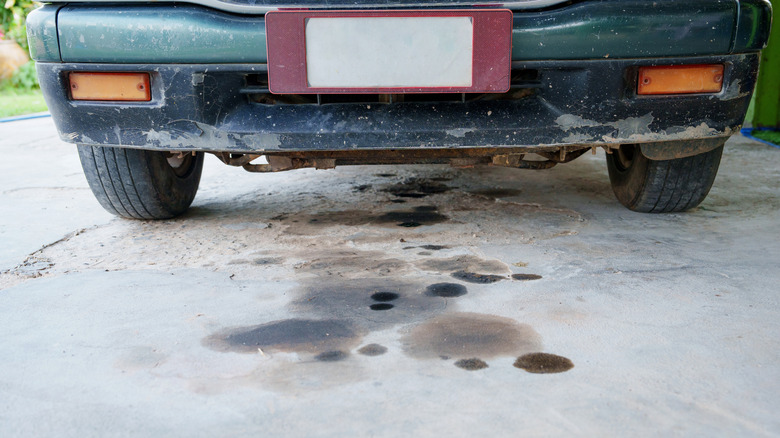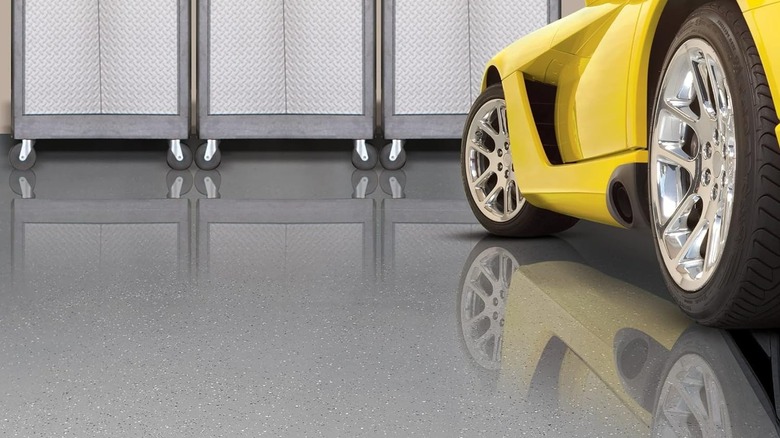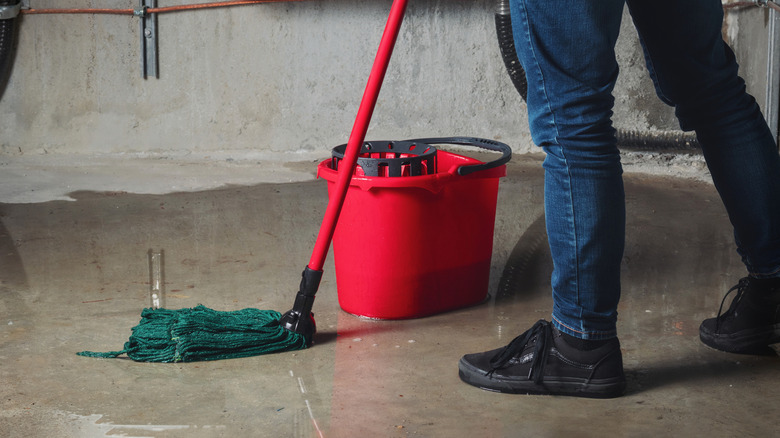Does Concrete Sealer Prevent Oil Stains (Or Are There Better Options To Consider)?
We may receive a commission on purchases made from links.
It's not completely unreasonable. You took the time and spent the money to apply a concrete sealer — perhaps on a driveway or garage floor — and you expect it to be able to repel oil stains — for a while at least. It is a concrete sealer used in a garage, after all. But these sealers aren't usually formulated to reject oil in the way you're expecting. Hunker spoke exclusively with Brett Labeka, Frontdoor virtual handyperson and concrete expert, and he emphasized that concrete sealers aren't (and aren't intended to be) a foolproof solution for preventing oil stains.
"One common misconception about using concrete sealers to prevent oil stains is that it makes concrete completely impervious to stains," Labeka said. Sealers are meant to reduce the likelihood of oil penetration and to slow it down, not to eliminate the possibility completely. "Oil can still find its way in if it's spilled in large quantities or if the sealer wasn't applied correctly," he explained.
Concrete sealers are still your ally in the fight against concrete stains, but they won't win the whole war for you."When you apply a sealer to your concrete, it creates a barrier that makes it harder for oil to penetrate the surface" Labeka said. "This can give you some extra time to clean up spills before they leave a stain."
Alternatives for preventing concrete oil stains
If concrete sealers don't protect against oil stains, what on earth does? When Hunker spoke exclusively with Labeka, he pointed out some alternatives to traditional concrete sealers for those looking to completely eliminate any staining. One option, he said, are oil-repellent treatments, a specialized sealer that penetrates concrete and guards more completely against oil absorption. Another option is an epoxy coasting. "These coatings are durable and provide a strong barrier against oil stains," Labeka said. "They can be applied to both indoor and outdoor surfaces." A third option is a polyurethane coating formulated to resist oil and chemicals. Labeka said these coatings are flexible and are particularly adept at withstanding temperature changes.
When we asked if there were a specific product or brand he recommends, Labeka said that Rust-Oleum Epoxy Shield concrete floor paint is the best option, in his estimation. "This sealer is designed to withstand heavy traffic and harsh weather conditions," Labeka said, adding that it "provides excellent protection against oil, grease, and other stains." Rust-Oleum Epoxy Shield is formulated to resist yellowing, fading, and peeling from UV exposure, something most concrete gets lots of. And it's easy to apply. "This sealer can be easily rolled or sprayed on," Labeka said, "and it dries relatively quickly."
What to do about concrete that is already stained with oil
A concrete floor paint like Rust-Oleum's Epoxy Shield that protects against oil stains sounds promising, but it's possible — and maybe likely, if you're concerned about it — that your concrete is already stained. Obviously, oil stains are difficult to cope with, or people wouldn't bother with coatings that protect against them. We asked Labeka in an exclusive conversation what you can do about existing stains. In addition to what he calls "specialized stain-remover products" that are designed to work on concrete, he had a few other ideas you can try.
Perhaps the most obvious is a degreaser: a cleaner designed explicitly to remove oily substances. Application might not be the most fun you've had today, but it's also not difficult. "Apply a concrete-safe degreaser to the stain," Labeka said, "let it sit, then scrub and rinse." Then there's the old standby: baking soda and vinegar. "Make a paste with baking soda and water," he said. "Apply it to the stain. Let it sit overnight, then scrub and rinse."
There's also a combined approach that you might have heard of, and may well have thought an unlikely approach: Use an absorbent material like sawdust or kitty litter to absorb moisture, essentially drawing out and soaking up much of the oil. From there, you can clean with degreaser or a solvent to remove as much as you can of the remaining stain.


